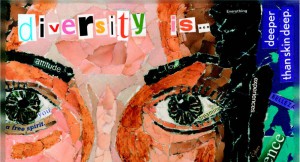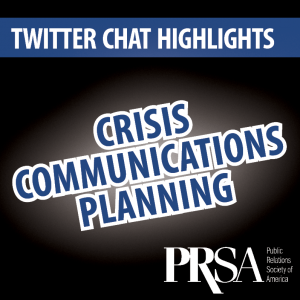 Those of you who are just starting out in your careers can probably remember the college professors who, not very long ago, did the best job motivating you, captivating you and exposing you to the possibilities in the world. We need more teachers like that in the public relations profession. We’re talking about teachers who can bring a combination of real-world experience and in-depth knowledge of the profession to the classroom.
Those of you who are just starting out in your careers can probably remember the college professors who, not very long ago, did the best job motivating you, captivating you and exposing you to the possibilities in the world. We need more teachers like that in the public relations profession. We’re talking about teachers who can bring a combination of real-world experience and in-depth knowledge of the profession to the classroom.
The “Learning to Teach” program is a collaborative effort led by PRSA’s College of Fellows Educational Initiatives committee, PRSA’s Educational Affairs committee and PRSA’s Educators Academy. It is designed to give those PR professionals who want to teach – as either an adjunct or full-time professor – an introduction to academia and a foundation for success in the classroom.
Last year, we began with some research of our PRSA members and discovered that only 1% of respondents had taken the “Learning to Teach” course, though 60% said they were very likely to consider an adjunct position in the future and 26% said they were very likely to consider a full-time teaching position. 63% said they would take the “Learning to Teach” course if it were offered remotely.
About Learning To Teach
Anyone can take the “Learning to Teach” course…whether they are interested in teaching now or in the future. The course covers:
- Guidelines on looking for a teaching position
- The application process
- The “honeymoon vs. reality” behind teaching – duties and expectations
- Basic tools & resources for developing materials
- Tips for effective course planning & researching the history of your course
- Measuring learning
This year, several PRSA Sections, Chapters and Districts are sponsoring programs on Learning to Teach – via teleconferences or via programs piggybacked on their conferences. If enough people register, the course might also be offered at the PRSA International Conference in October 2014 in Washington, DC.

If you have any questions about this course want to learn more, contact Robin Schell at rschell@jjwpr.com or 603-770-3607.
This post was written by Judy VanSlyke Turk, APR, Fellow PRSA and Robin Schell, APR, Fellow PRSA, co-chairs of the Educational Initiatives Committee of the PRSA College of Fellows.

 March is Women’s History Month. I wanted to get inspired, so I decided to read Sheryl Sandberg’s,
March is Women’s History Month. I wanted to get inspired, so I decided to read Sheryl Sandberg’s,  Emily Suied is a public relations professional in Chicago. She is a member of PRSA Chicago and serves on the Young Professional Network committee. Emily graduated from the University of Texas at Arlington and was the president of its PRSSA chapter. Connect with Emily on her
Emily Suied is a public relations professional in Chicago. She is a member of PRSA Chicago and serves on the Young Professional Network committee. Emily graduated from the University of Texas at Arlington and was the president of its PRSSA chapter. Connect with Emily on her 
 Megan O’Neal graduated from UCLA in 2011 with a Bachelor of Arts in Communication Studies, emphasizing in mass communications. She currently works as the Marketing and Communications Coordinator for SDA and volunteers with the National MS Society, freelancing for the PR Department. Connect with her on Twitter @megannenicole.
Megan O’Neal graduated from UCLA in 2011 with a Bachelor of Arts in Communication Studies, emphasizing in mass communications. She currently works as the Marketing and Communications Coordinator for SDA and volunteers with the National MS Society, freelancing for the PR Department. Connect with her on Twitter @megannenicole.
 Simon Oh is the diversity liaison for the PRSA New Professionals executive committee. He is currently a graduate student at San Jose State University, studying transportation management. His professional background includes public affairs and community relations within the transportation field. Connect with him on
Simon Oh is the diversity liaison for the PRSA New Professionals executive committee. He is currently a graduate student at San Jose State University, studying transportation management. His professional background includes public affairs and community relations within the transportation field. Connect with him on 
